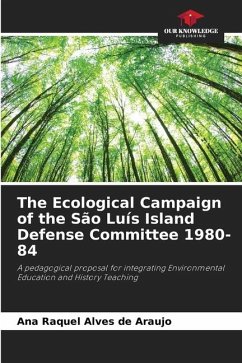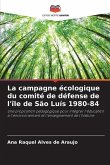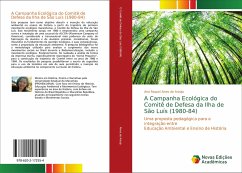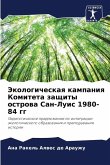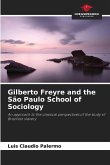This research aims to discuss the inclusion of environmental education in history teaching based on the history of the first ecological movement in Maranhão, the São Luís Island Defense Committee. This movement emerged in 1980 and campaigned against the installation of a branch of ALCOA (Aluminium Company of American), considered the most powerful transnational in the alumina and primary aluminum manufacturing sector. Initially, the foundations of the ecological issue and its consequences were discussed, as well as the proposition of environmental education. Bibliographical research was the methodology used to analyse the emergence of new social movements in Brazil during Redemocratization, including the ecological movement. Subsequently, we analyzed sources from the written press, specifically reports from the "Jornal Pequeno", in order to construct the Committee's trajectory between 1980 and 1984. The results of the research made it possible to write suggestions for using the theme in the classroom, allowing environmental education to be included in the history curriculum.
Bitte wählen Sie Ihr Anliegen aus.
Rechnungen
Retourenschein anfordern
Bestellstatus
Storno

